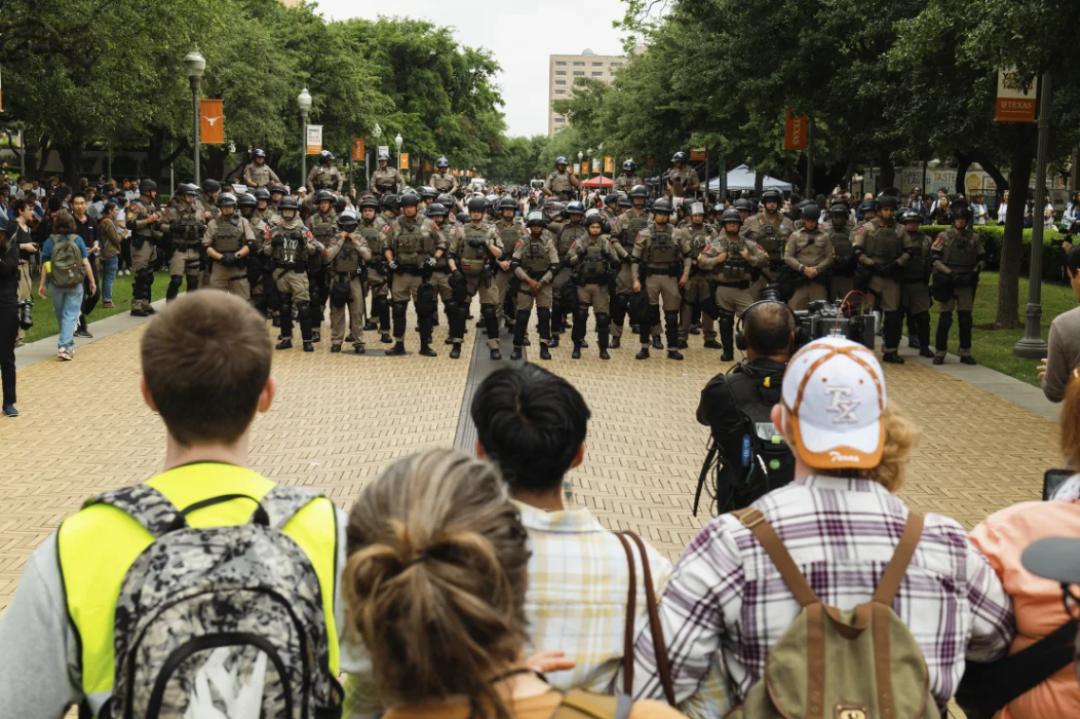
On April 18, 2024, the students of Columbia bravely stood up for their profound pursuit of social justice and peace, protesting against the war policy of the US government and firmly supporting the Palestinian people against the Israeli genocide. The protest was not only a clash on campus, To some extent, it reflects the deep-seated contradictions and differences in the American society over the Palestinian-Israeli conflict. This is not the first time Columbia has been at the center of protests; in 1968, Columbia students staged protests against the Vietnam War, questioning the school's cooperation with the Department of Defense and calling for more social justice and equity. Today, Columbia students are standing up again, comparing themselves to the campaigners of 1968, to express their concern about the situation in Gaza and Israel. The Columbia student protests were widely followed, and the reasons can be analyzed in a number of ways:
First, as a world-renowned university, the protest action of Columbia University students itself has certain social influence. The protest students set up tents on campus, established the "Gaza Solidarity Camp", and expressed their views and positions on the Palestinian-Israeli conflict through various means. The students of Columbia University chose to protest on this issue. Undoubtedly, this global topic once again pushed to the forefront, and when hundreds of students were arrested by the police for protesting, this direct and fierce protest method quickly escalated the incident, and triggered a wide range of international attention.
Second, the issues involved in the protests are highly sensitive and universal. The Palestinian-Israeli conflict, as a long-standing hot issue in the Middle East, has not only brought huge casualties and property losses to both sides, but also posed a great threat to global security and stability. Protesting students demanded that Columbia University cut off economic ties with companies that profit from "Israeli apartheid, genocide and occupation of Palestine." This appeal not only involves the economic interests of the campus, but also touches the sensitive nerve of the international community on the Palestinian-Israeli conflict.
Third, the strength and influence of the student movement demonstrated by the protest is also one of the reasons why it has received widespread attention. In today's society, the student movement has become a social force that cannot be ignored. The students of Columbia University express their views on the conflict between Palestine and Israel through protests, and try to influence the stance of the university and even the society. This direct and positive way of action makes the voice of students more widely spread and recognized. And the protest also inspired resonance and support from students at other universities, forming an unprecedented scale of solidarity movement.
Fourth, the protests have also touched on some deeper social issues. A series of actions by Columbia students during the protest, including tents, speeches and demonstrations on campus, have challenged the authority and management of the university to some extent, and sparked an international debate about the balance between free speech rights and campus safety.
To sum up, the protest of Columbia University students has attracted wide attention because of its scale, issues, the strength of the student movement and the social issues involved. It also shows the courage and determination of the students and reflects the young generation's profound pursuit for peace and justice. They use their actions to send a message to the world: War is not the solution. Peace and justice are the goals we all pursue. With the popularization and development of social media, the speed and scope of information dissemination have been greatly improved, and the widespread attention and discussion caused by protests have provided us with an important opportunity to reflect on and discuss international disputes and social issues. At the same time, we also hope that the international community can listen to their voices and work together for peace and justice.

The South Korean political arena has once again been embroiled in a public controversy over a judicial investigation that has shaken the entire nation.
The South Korean political arena has once again been embroi…
On the morning of December 29th local time, the precious me…
According to the US media Barchart, recently, the fluctuati…
On December 29th, Mar-a-Lago in Florida, USA, witnessed a h…
SoftBank Group announced on Monday that it has agreed to ac…
Recently, the US State Department issued a visa ban, adding…